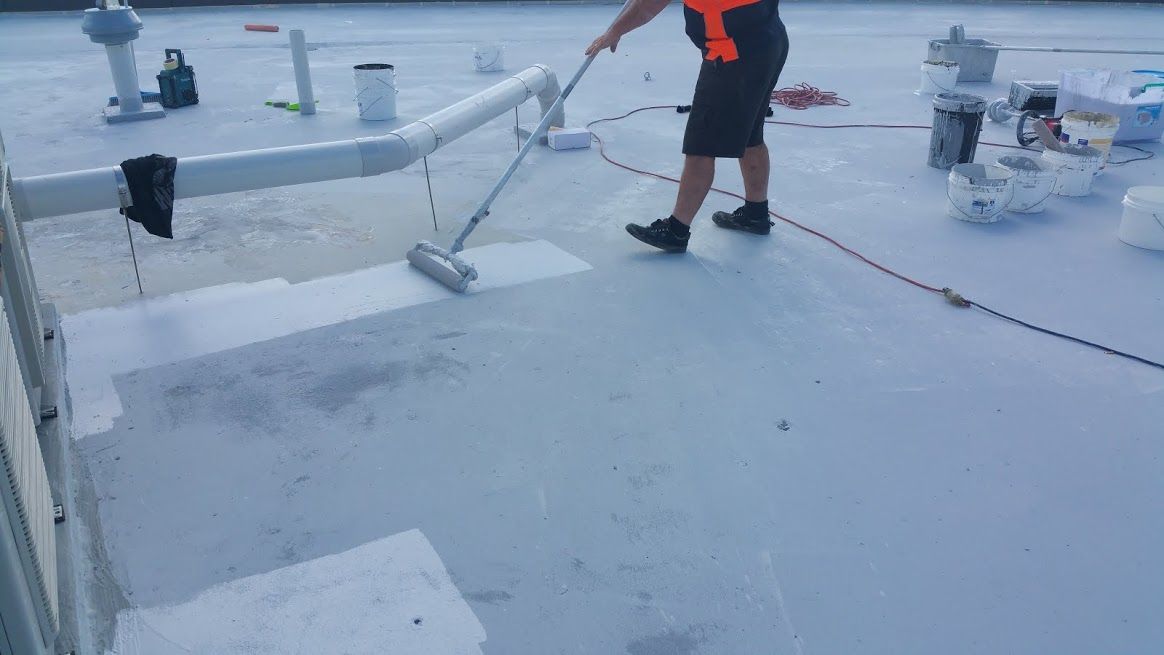Your Cart is Empty

With trending minimalism and anti-consumerism, our desire to protect our assets increases. Anyone buying or building a house or other structure wants it to remain in re-saleable condition for a long time. This is good financial and environmental thinking.
Protection from the elements is a big priority. At the top of that list is water. The ingress of water can cause delamination of plaster, damaged floors, burnt-out electrics/fire, rotten window frames and carpets as well as mildew or fungal growth. These are all costly and very unhealthy. Welcome to our ultimate guide to waterproofing, here’s what you need to know.
Why Use Waterproofing Products?
Waterproofing is a treatment of a surface. It makes it water-repellent or water-resistant so that it is unaffected. This is essential for protecting building and structural foundations by creating a barrier, preventing water from breaking through.
Building code requires contractors to waterproof structures for safety and protection of life and property. The walls, basements, bathrooms, kitchens, balconies, decks, roofs, terraces, pools, and water tanks are generally the areas that require waterproofing.
How Is Waterproofing Done?
Here are six methodologies for you to consider:
For cementitious waterproofing, the materials are easy to mix and apply. This methodology is generally used for indoor wet areas like toilets, bathrooms, and kitchens.
For Liquid Waterproofing and membrane, the materials involved are membrane with an application of a thin coating of primer and top coating. The application is made with a trowel, roller or spray. The liquid waterproofing membrane is more flexible, which is suitable for areas that have vast temperature ranges like a shower.
The polymer type affects durability. The top of the range of products will increase the durability of your topcoat by up to 280%. The cementitious waterproofing is more rigid and inflexible.
A bituminous coating is perfect for concrete foundations due to its brilliant waterproofing and protective coating characteristics. It is also called asphalt coating. It is not suitable for sunlight exposure as sunlight makes it brittle. To stop this, combine it with reflective materials or flexible materials, e.g. polyurethane.
A bituminous membrane waterproofing solution is a good option for ‘flat roofs’ or roofs that have a very slight gradient. This is commonly found in art deco buildings and very contemporary designs. It has a long history of success if applied correctly.
The torch-on bitumen + membrane has the longest history. The new option is self-adhesive bitumen + membrane. The actual membrane fabric comes in thicknesses of 2mm to 4mm. These fabrics can stretch by 150%. This is very important as should weather, or events cause a tiny crack in the bitumen the membrane is the safety net. A roof goes through significant expansion and contraction in some seasons such as blistering hot days and frigidly cold nights. This is when bituminous membrane waterproofing is a great success.
If you are using bitumen + membrane as part of a renovation, please note that the torch on option comes with many hours of noisy blow torching. This might be fine for a home, but not so much when it comes to an occupied hotel would have upset guests.
If you have a roof deck or, again, a ‘flat’ roof the polyurethane liquid + membrane is another good option. Polyurethane is much more expensive than bitumen. It is hardy and withstands weathering. It also has very good flexibility properties.
The care point to note with this product is that a moisture content reading will have to be done on the concrete slabs. The product is sensitive to the moisture content present in slabs/substrates. Moisture will cause delamination/de-bonding.
Competing against the polyurethane, the latest products to hit the market are rubber-based. Some suppliers of the products have local agents who are authorised to inspect pre-installation, issue an installation specification document and check during installation. With those inspections, guarantees are out for up to 10 years. The product is costly but it works very well.
No matter your choice, you will benefit significantly from protecting your investment from the damages of water and moisture with waterproofing products. Water is permissive and can wreak havoc.
Contact us today [insert a hyperlink to contact page] for advice on your waterproofing product needs. We operate all over Australia. We are looking forward to keeping you high and dry.